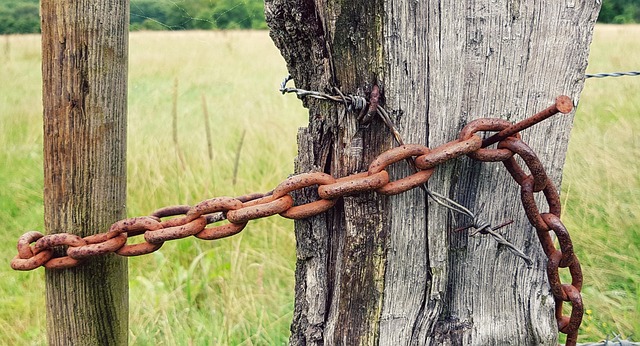- Understanding Your Privacy Fence's Material and Needs
- Regular Cleaning and Maintenance Routines
- Inspecting for Damage and Wear Over Time
- Securing and Strengthening Your Fence
- Professional Help: When and How to Hire
Understanding Your Privacy Fence's Material and Needs
Privacy fences are an investment for any New Bedford homeowner, providing a sense of security and seclusion. To ensure your fence remains effective, understanding its material and specific needs is key. Different materials like wood, vinyl, or metal have unique requirements for maintenance; regular cleaning, repainting, or sealing are often necessary to protect them from the elements.
Additionally, consider the fence’s design and purpose. Is it a solid barrier for privacy or a lattice structure allowing some visibility? Regular inspections will help identify any damage, wear, or potential security vulnerabilities, ensuring your privacy fence serves its intended purpose effectively.
Regular Cleaning and Maintenance Routines
Keeping your privacy fence clean and well-maintained is an easy task when incorporated into your regular outdoor routine. Start by sweeping or vacuuming any loose debris, leaves, and grass clippings from the fence’s surface to prevent buildup. Use a soft brush to gently scrub away any dirt or stains with mild soap and warm water; this method is effective for wood, vinyl, or chain-link fences. Regular cleaning not only improves the aesthetic appeal but also helps identify potential issues early on.
Establish a consistent schedule for inspections and maintenance checks. Check for loose or damaged panels, posts, or chains, replacing any worn-out components promptly. Coating metal parts with fresh paint can extend their lifespan and protect them from rusting. Keep an eye out for signs of rot or pest infestation in wooden fences; treat these issues quickly to prevent further damage.
Inspecting for Damage and Wear Over Time
Privacy fences, like any outdoor structure, are subject to damage from weather, pests, and normal wear and tear. New Bedford homeowners should make it a habit to regularly inspect their fences for signs of distress or decay. Look for rot or mold in wooden posts or panels, as well as any loose connections or warped surfaces.
Metal fences may show rust or corrosion over time, while vinyl fences can become cracked or brittle. Regular inspections allow for prompt repair or replacement, preventing small issues from escalating into major problems that could compromise the fence’s structural integrity and effectiveness in providing privacy.
Securing and Strengthening Your Fence
Regular maintenance is key to keeping your privacy fence strong and secure. Start by inspecting it for any signs of damage or weak points. Look out for loose or missing boards, rot, or gaps that might allow intruders access. Repairs should be done promptly; replacing damaged sections with new materials will ensure structural integrity.
Consider reinforcing your fence further by adding support beams or brackets every few posts. This is especially beneficial if your fence bears weight from overhead branches or is subjected to strong winds. Strengthening the fence not only boosts security but also extends its lifespan, ensuring your privacy and investment are well-protected.
